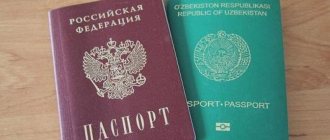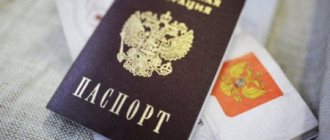Find out the conditions for accelerated acquisition of EU citizenship
Contact us
EU citizenship provides the right to reside and officially work in the European Union, and also allows you to develop business on the international market. The status of a European citizen is a guarantee of receiving quality medical care, prestigious education, and social protection. When foreigners obtain EU citizenship, the requirements in each country of the European Union differ at the legislative level. The constitution and citizenship law of the chosen country regulate how one can obtain a national passport and become a European citizen.
Myth 1. You can have a baby in Europe and get an EU passport
to obtain an EU passport is still widespread on the Internet .
According to the myth, it is enough to give birth to a child in one of its countries. They say that the child will immediately receive citizenship, and the mother herself will be legalized. There are indeed countries in the world where a child born on their territory is automatically considered a citizen. This is the law in the USA, Canada, Brazil, and a number of other countries on the American continent - it provides for citizenship by right of soil.
But in the European Union it’s not like that – here citizenship is obtained by right of blood. If at least one of the parents is a citizen of the country where the child was born, and this country is part of the EU, then there are no obstacles to granting the baby EU citizenship. Otherwise, the child receives citizenship of the country of which one of the parents is a citizen. The birth is registered at the consulate.
Certain simplifications in this area are available in Belgium, Denmark, Great Britain, Greece, Spain, Ireland, Italy, and France. They allow a child to obtain citizenship, but only after he and his parent have lived in the country for the required number of years, usually at least eight.
The terms and conditions for obtaining citizenship by birth in Europe are prescribed in the legislation of individual countries. Thus, having a child in Europe and obtaining citizenship is possible only under certain conditions.
How to become an EU citizen: grounds for obtaining citizenship
Currently, there are several ways to purchase a passport from the desired country.
By birth and origin
Many people confuse this criterion with repatriation, but this is not entirely true. In different countries, the principles of “law of blood” and “law of soil” apply, which are aimed at family reunification.
Jus sanguinea means that a child of citizens of a state automatically receives the citizenship of the parents, regardless of their place of birth (for example, Romania).
This principle also considers situations where only one of the parents has citizenship and the child was born on the territory of this country.
Many countries also allow citizenship by right of soil (or right of the land):
- the parents are foreigners, but have lived in the state under permanent residence for a certain amount of time (in Germany - at least 8 years);
- the origin of the parents is unknown (the child was abandoned or given to someone else), then he automatically receives citizenship of the country where he is located (Romania);
- a child born in the state lives the number of years established by law until he reaches the age of majority, after which he has the right to receive a passport (in France - at least five years preceding his eighteenth birthday);
- the child lived in another country after birth, but has the right to apply for citizenship when he reaches 19 years of age (Spain).
Attention! In Ireland, a child born in the territory automatically acquires citizenship by right of the soil, regardless of the status of the parents.
Is it possible to give birth in Europe and obtain citizenship?
The very fact of the birth of a child does not automatically obtain citizenship for either the mother or the child. Citizenship can only be obtained after long-term residence in the country.
Important! In Italy, you can obtain citizenship after the birth of a child if the mother has lived for at least 1 year after giving birth. However, the main fact is the presence of a marital relationship with an Italian.
In which countries is it easiest to become a citizen through marriage?
Don't believe rumors. Obtaining citizenship through marriage is by no means the easiest procedure. The maximum you can apply for is obtaining a residence permit through a simplified procedure.
But some states legally establish shortened deadlines for obtaining a passport if there is a marriage certificate with a citizen.
Of greatest interest is obtaining Portuguese through marriage. It can be not only legal, but also actual (cohabitation). Spouses or cohabitants must have lived together for at least three years, after which the foreign spouse can apply for a passport.
obtain a French provided:
- living with a French spouse for 4 years in the country;
- for 5 years if they lived in another state.
Italy:
- cohabitation of spouses on the territory - 2 years;
- outside - 3 years;
- if there are children - 1 year.
Ireland:
- marriage can only be concluded after living in the country for 2 years;
- A passport can be purchased after 3 years of marriage.
The citizenship law in Spain is distinguished by the greatest loyalty. A passport can be purchased if you have the following facts:
- the foreigner has a residence permit in connection with marriage;
- The waiting period is 12 months from the date of marriage, after which you can obtain citizenship.
Important! To the listed conditions are added the general requirements that applicants must have (no problems with the law, knowledge of the language, etc.).
Naturalization
This procedure is the acquisition of citizenship at the request of the applicant. Almost all methods of obtaining a passport (except for the right of blood and soil) can be classified in this category.
In order to obtain citizenship in this way, a person must have a residence permit and live on it for several years (from 5 to 10 depending on the country).
Thus, to obtain German citizenship it is necessary (in accordance with the “Citizenship Law as amended, published in the Federal Gazette of Laws, Part III, No. 102−1, as amended and supplemented by Article 3 of the Law of October 11, 2016 (Federal Gazette laws, I p. 2218)"):
- live for at least 8 years under permanent residence;
- speak German at the communication level;
- be financially wealthy, able to support yourself and your family;
- own housing;
- no problems with the law;
- renunciation of first citizenship (exception: EU countries, Switzerland, ethnic Germans or Jews by origin), because Germany does not recognize dual citizenship.
Read: How to obtain German citizenship
Greek passport can be obtained by naturalization only in a few cases (according to the “Greek Citizenship Law No. 3284” of 2004):
- the foreigner is ethnically Greek;
- or marries a citizen of the country;
- birth in Greece (citizenship can be acquired upon reaching the age of majority).
Important! To the above, it is necessary to add general conditions (language proficiency, absence of offenses, etc.), as well as the acquisition of property in the amount of over 250 thousand euros.
Statistics show that acquiring a
Hungarian through naturalization has not been so easy in the last few years.
The country's authorities cannot deny this right only to those who have Hungarian relatives. Conditions for naturalization (in accordance with the Hungarian Citizenship Law No. 55):
- continuous residence for 8 years (you can leave the country, but no more than 45 days a year);
- passing an exam on knowledge of the basics of the Constitution and language;
- no problems with the law.
Repatriation
This term literally means “returning home.” Repatriates are the descendants of subjects of a particular state, as well as former citizens themselves who, for one reason or another, moved outside their homeland.
Some states have created special programs that make it easier for such individuals to obtain a passport.
Conditions that Poland :
- presence of evidence of family ties with the Poles;
- if a person was previously a citizen of Poland, he can participate in the repatriation program only if citizenship was lost against his will;
- absence of crimes against the state itself or individuals.
Important! Poland provides its repatriates with various benefits and allowances (for example, for the first six months a monthly payment of 142 euros is provided, 5920 euros are paid as assistance for the purchase of housing, as well as other benefits established in accordance with the Polish law on repatriation).
Romania, according to the Law “On Citizenship” No. 21 of 1991, allows living citizens of the Russian Federation, the Republic of Belarus, Moldova and Ukraine who are relatives of Romanians up to the 3rd generation (especially descendants of those who were citizens from 1918 to 1940) to obtain citizenship according to a simplified procedure. That is:
- no language knowledge required;
- there is no need to reside continuously in Romania for 5 years.
Important! Documentary evidence of family ties must be presented (this can be obtained through the registry office or archive).
Where can I get a passport through investment?
Various simplified conditions for obtaining citizenship are also provided to investors in the European economy. Out of 28 countries, 12 provide such a wonderful opportunity.
Cyprus is the most attractive country for economic migration because:
- there is no need to reside on its territory both before and after obtaining citizenship;
- a passport is purchased after 3-4 months after an investment of 5 million euros (2.5 million if a group of at least 5 persons invests);
- after 3 years, the person returns the right to dispose of the property that was invested.
Malta provides the Institute of Economic Migration with the following conditions:
- the investment amount must be at least 500 thousand euros (150 thousand are invested in government bonds, and the remaining 350 in real estate), which can be returned after 5 years;
- mandatory donation to a state fund (at least 650 thousand euros);
- Citizenship is acquired within 12-14 months.
Austria requests the largest amount of investment for future citizens . If you send 10 million euros to develop an Austrian business, obtaining a passport will take no more than 1.5 years.
In Slovakia there is also an investment program for obtaining a passport (from 2 million euros) after 1-2 years. But for this you need to renounce your first citizenship.
Germany, Spain and Latvia will also require renunciation of citizenship.
Where are passports issued for the purchase of real estate?
The countries mentioned above (Cyprus, Malta, Spain, Latvia) have identified real estate both as an investment object and as an independent way of acquiring citizenship.
conditions :
- housing is purchased for at least 500 thousand euros;
- obtaining a passport can be done after 6 years.
Important! During this period, the person must reside in the country for at least 6 months each year.
Greece:
- 250 thousand euros for real estate;
- after this, a residence permit is immediately issued for 5 years, after which you can obtain citizenship itself.
Bulgaria is not much different from Greece in its conditions :
- real estate is purchased for at least 300 thousand euros;
- A residence permit is issued for 5 years, after which you can acquire citizen status.
In which countries can you obtain citizenship through an educational program?
European universities have a high quality of education, which is why many strive to get an education outside their homeland. Few of yesterday's students are eager to return home, preferring to find a job at their place of study.
After graduating from an educational institution, most EU countries provide individuals with the opportunity to obtain a residence permit, which after a certain period can develop into full citizenship.
These include popular educational programs:
- Germany (citizenship - subject to renunciation of the previous one);
- Spain;
- Czech Republic;
- Greece;
- Italy;
- France;
- Austria.
For those with in-demand professions
Another common way to obtain a passport is through work. Most countries also provide this opportunity.
Procedure:
- travel on a work visa;
- obtaining a residence permit;
- acquisition of citizenship.
- Great Britain.
In accordance with the referendum, it is assumed that the United Kingdom will leave the European Union on March 29, 2021. Until this time, the state is a participant, and in turn allows representatives of various professions (including artists) to obtain citizenship.
- Germany.
Despite residence for 8 years and the need to renounce their citizenship, Germany needs highly qualified medical workers, quite willingly providing them with the opportunity to obtain a passport.
- Italy.
The state is currently experiencing a shortage of specialists in completely different fields: cooking, tailoring, woodworking, as well as medicine or engineering.
Countries that allow dual citizenship
It is legally permitted to have two or dual citizenship in the following countries:
- Belgium;
- Hungary;
- Great Britain;
- Greece;
- Denmark;
- Italy;
- Ireland;
- Cyprus;
- Luxembourg;
- Latvia;
- Malta;
- Portugal;
- Romania;
- France;
- Finland;
- Czech Republic;
- Sweden.
De facto, dual citizenship is prohibited in Poland, but a second passport only threatens the violator with a fine.
In a number of countries, dual citizenship can be obtained, but only if certain conditions are met:
| State name | Exceptional conditions |
| Austria | Allowed only to those who have citizenship by birthright |
| Bulgaria | Allowed only by birthright |
| Germany | Only for EU, Swiss, ethnic German and Jewish citizens |
| Spain | Only by birthright |
| Lithuania | Only by birthright |
| Netherlands | Only by birthright |
| Slovenia | Only by birthright |
| Croatia | Only ethnic Croats |
| Estonia | Only ethnic Estonians |
Attention! The only EU country that prohibits dual citizenship for everyone without exception is Slovakia .
Refugee status
Despite the fact that the European Union stands up for human rights, obtaining refugee status is quite difficult.
It is necessary to have significant evidence that in the state of which the person has citizenship, it is dangerous for him to be for political, racial, national reasons, as well as because of belonging to a minority.
However, some individuals who receive refugee status subsequently successfully obtain citizenship.
How else can you obtain citizenship?
A rare but effective way is to acquire citizenship for certain merits in the field of science, art, sports, or even in the military and political activities of the country.
Myth 2. EU citizenship can be obtained through a fictitious marriage

Let us note right away: this is the path followed by up to 60% of scammers who offer to quickly and easily
become a citizen of the European Union .
The path seems as easy as possible: you marry a foreigner living in the EU, and voila! – you automatically receive an EU passport. Don’t underestimate the ingenuity of EU migration services, which deal with dozens of similar cases every month. In fact, no EU country has such a law. At least there won't be a fake marriage.
For example, in Germany, spouses will have to live in the country for at least 3 years before the one who does not have EU citizenship can apply for it. Moreover, all this time you will have to conduct absolutely legal activities and carefully hide the fictitiousness of the marriage, masquerading as an ideal family. After all, you will be under the watchful attention of government services!
Your family will be required to comply with the German state’s ideas about the institution of family. It will not be possible to “live separately” even for some time, otherwise you may fall under the suspicion of officials. Similar rules apply in other EU countries. Therefore, obtaining EU citizenship through marriage is not at all easy.
Which European country is easier to obtain citizenship in?
Not all federations and republics wished to join the European Union and accept all the conditions and restrictions of such a choice. Many states wished to preserve their identity, their production and develop internally, providing a decent standard of living for their citizens.
At the same time, many of them provide a fairly simple procedure for obtaining citizenship and provide residence permits to attract new specialists, giving them the rights of indigenous residents.
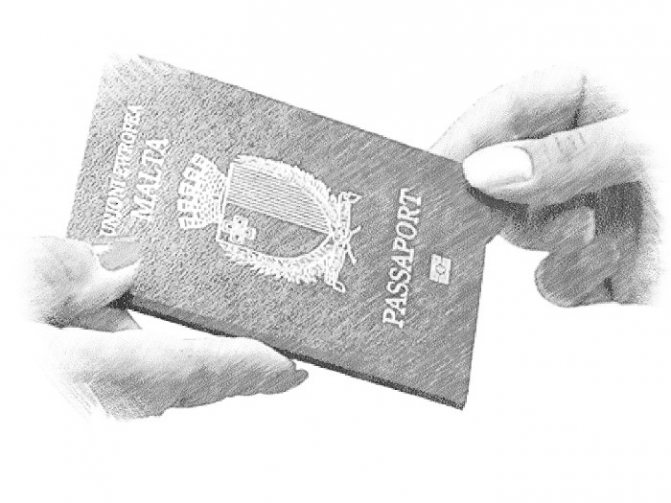
Table 3. Where is it easier to get permanent residence and a passport?
| Name | Requirements (nuances and options) |
| Liechtenstein |
|
| Switzerland |
|
| Belarus |
|
Myth 3. EU citizenship can be bought

Citizens of countries from the post-Soviet space, due to one of their national habits, are accustomed to the fact that much in the world can be purchased for money.
Therefore, the idea of buying an EU passport seems quite logical and normal to some of them.
However, their ideas are shattered by the legislation of European countries, which is very strict regarding corruption and trading in documents. Fortunately for Europeans, it is not possible to buy EU citizenship, like buying a yacht or a car. Otherwise, there would be no place left for them in Europe. Therefore, EU laws protect its own citizens from such cases.
Myth 4. A European passport for investment can be obtained in any EU country
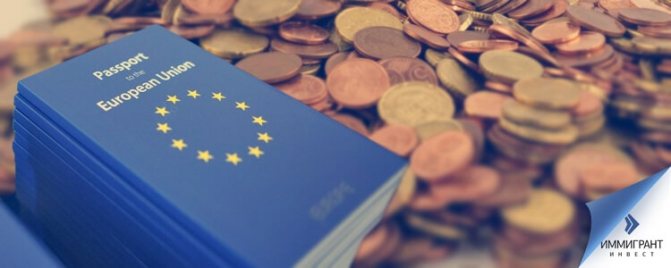
EU citizenship can be obtained not only by being born on the territory of a European country, by coming there to work and settling there permanently, or through marriage to a representative (representative) of a certain country. A number of European countries offer residence permits in exchange for investments.
The vast majority of European countries are not interested in freely issuing their own passports, since the migration problem in Europe is extremely acute. Only a few countries that are particularly interested in investment offer citizenship programs in exchange for a monetary contribution to the economy.
Currently in Europe, only 3 countries offer programs attractive to investors.
- Citizenship of Malta. To obtain a passport, you need to make a non-refundable contribution to the National Development Fund (650 thousand euros), buy government bonds (150 thousand euros) and purchase/rent residential real estate (from 350 thousand euros/from 16 thousand euros per year)
- Citizenship of Cyprus. The most popular and sought-after method is the purchase of residential real estate in the amount of 2 million euros. Options for purchasing commercial real estate or government bonds are also possible, but in these cases the amount will be at least 2.5 million euros
- British citizenship. Suitable for wealthy investors, as the program involves significant investment. In this case, the investor first receives a residence permit (Investor Visa (Tier 1), then permanent residence. And only in the 5th-6th year (subject to living in the country for at least 185 days a year) - citizenship. The specific terms depend on the amount of investment - they range from 2 to 10 or more million pounds sterling
- Bulgarian citizenship. The accelerated procedure for investors investing 1 million euros in the country's economy involves first issuing permanent residence permits, and after 2 years - a passport
If you are offered citizenship of Germany, France, Italy or another top country in exchange for investment, know that these options are impossible and you are dealing with an obvious deception.
EU citizenship
The European Union is not a separate state, but only a union of several independent countries. There is no mystical “second” passport in nature.
To be able to enjoy all the rights and bear responsibilities on an equal basis with Europeans, it is necessary to acquire citizenship of at least one of the states that are members of the Union.
Concept and legal nature
According to the amendments made to Art. 17 of the Maastricht Treaty, a person who already has the citizenship of one of the participating countries is also a citizen of the entire European Union. That is, the new passport did not change the main citizenship, but only supplemented it, giving its holder a set of additional rights.
In order to obtain an EU passport, a citizen of one of the participating countries does not need to apply anywhere else: national and foreign passports have a single form and a mark of entry into the European Union. Its characteristics:
- burgundy color;
- name of the participating country;
- coat of arms;
- inscription: "European Union";
- all inscriptions are in the official language (languages, if there are several) of the state.
Important! There is no single law governing the issuance of EU passports. Since citizenship is a matter of national constitutional law, its issuance is regulated by each state independently.
Benefits of European citizenship
Having a European passport gives a citizen a number of additional rights:
- Possibility to live and move freely throughout the EU (Article 18 of the EU Treaty)
By receiving a passport from one of the participating countries, a person can move for permanent residence to another state and cross the border between countries at any time. In addition, this right gives a citizen the opportunity to get a job in any country with virtually no restrictions (with the exception of national defense, since this is the right of specific citizens).
- Active and passive suffrage (Article 19).
A person has the right to vote or stand for election in local or European elections in any of the Member States on an equal basis with its citizens.
- Visa-free travel or a simplified procedure for obtaining one.
Many countries provide visa-free travel between them and EU countries. These include the USA, Canada, Mexico, Brazil, Japan, Hong Kong, a number of European countries that are not members of the EU, etc.
Who can get the desired status
Not everyone may have such an opportunity.
- Europeans will not tolerate criminals in their ranks.
An applicant for citizenship of one of the countries must have no problems with the law, and this applies not only to a criminal record or criminal prosecution. Failure to pay taxes, bad credit history, and even prosecution for minor offenses can become obstacles to obtaining a passport.
- Facial well-being.
For persons who have received a residence permit due to marriage, this point will not play a special role, but for others the requirements in most countries are the same: the ability to provide not only for themselves, but also for all members of their family.
- Knowledge of the language.
In order to obtain citizenship of any state (not only within the EU), it is necessary to confirm language proficiency at least at the level of communication.
- Period of residence.
Each country sets its own minimum period of residence within its borders in order to subsequently be able to purchase a passport. Moreover, shortened terms may be established for a number of citizens (in case of marriage or other noteworthy conditions).
Attention! Even these rules have exceptions. Citizenship can be issued to investors (we are talking about a large sum in favor of the state or the purchase of expensive real estate) without checking language knowledge (it is assumed that the investor, while carrying out his activities, has it at the proper level) and period of residence.
How to choose a country for citizenship
Before making such a difficult choice (and you will have to choose from 28 states), a person needs to weigh all the pros and cons that can be expected when relocating.
Important! Tourist trips are not the best option for determining future citizenship. As a rule, tourists are shown only the “good” side of life. Problems remain only with citizens and foreigners (or even stateless people) who live and work in the real world, outside the tourist beauty.
Therefore, before receiving a passport, you must live in the state under permanent residence status. To still choose a country, you need to take into account a number of criteria.
- Decide on the purpose of obtaining citizenship.
In most cases, citizenship is acquired for subsequent unhindered residence in a particular territory. In lesser cases, a person receives a second passport for a more profitable opportunity to conduct business; accordingly, citizenship should be obtained where there are more opportunities for business development.
- Standard of living.
Low food prices are far from an indicator of living standards.
It is necessary to weigh the costs of travel on public transport, medical care (some types of assistance are free, but only for citizens; while a person is under permanent residence status, he will have to pay for visiting or visiting a doctor), kindergarten for the child, taxes... It’s not in vain that the candidate There are high financial requirements for obtaining citizenship.
Before moving, it is advisable to weigh your income level and compare it with the possibility of living in a particular country.
- Low level of crime.
For many, the desire to move to Europe is associated with a high level of security. Countries such as Austria or Cyprus pay great attention to the peace of mind of their citizens.
- Level of economy and infrastructure.
The first is related to security in the country. When the economy is low, crime also increases, which means the risk of falling into the hands of a robber or fraudster will be high. You should not choose countries with high unemployment rates.
It is also worth paying attention to specific settlements and the level of infrastructure development in them. The cost of utilities will also be a determining component.
Note! Study the state tax system as well. The most attractive rates at the moment are from Cyprus and Malta.
- Level of culture and mentality.
It is more comfortable to be in an environment that is closer to familiar. Punctual people who are accustomed to following boundaries and rules will find it most convenient to live in Germany. Pragmatists will also like Malta.
Traditions and customs vary among countries. Some may find the “orange fights” during the Jewish Carnival in Italy or the “cinnamon shower” that is organized for single young people over 25 in Denmark strange (if loneliness continues at 30, cinnamon is replaced with pepper).
It is worth choosing a country whose traditions will not confuse you, but will arouse interest.
Myth 5. After investing funds, they may refuse to issue a passport and the money may not be returned.

All programs offering citizenship by investment in Europe are public and their implementation is controlled by the government. For example, a separate structure works with investors who want to obtain Maltese citizenship - IDENTITY MALTA AGENCY, which is responsible for the correctness of the entire process. Malta's investment program has been approved by the European Commission.
Participation in the programs is absolutely official, and the stages of the procedure for obtaining a passport are known in advance and are enshrined in law. According to the law, an investor deposits funds into a special account only after his candidacy is approved. And it is impossible to swap these two stages! If you were offered to first deposit money and then have your candidacy approved, you are dealing with scammers!
Yes, the issuance of a passport may be refused. For example, when obtaining citizenship in Malta, an investor undergoes Due Diligence. If problems with the law are discovered, he will most likely be denied. By the way, in order to prevent such cases from happening, we offer investors to undergo their own preliminary verification, similar to Due Diligence. This will eliminate any surprises when applying to the program.
Myth 6. A passport received for investment is different from a regular passport of a citizen of the European Union
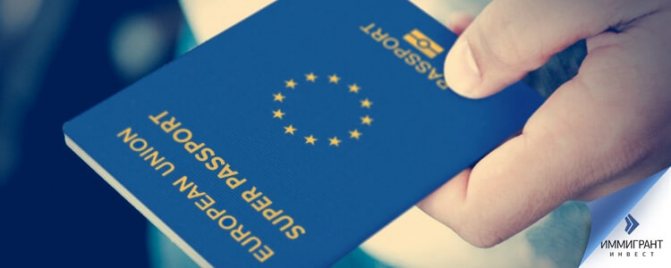
The passport that a participant in any investment program receives is no different from a similar document for citizens of the European Union and does not limit you in any way. You get the same rights as any European with an EU passport. You can participate in elections and hold high positions in the civil service. In Malta, the only difference is that investors have private health insurance instead of government insurance.
How to obtain EU citizenship by investment?
Our experience shows that many people interested in purchasing EU citizenship actually have no idea that completely legal economic investment programs exist in most European countries. Why try to illegally buy a passport if you can officially invest the same amount in the economy of the country whose citizenship you are counting on? And even get a return guarantee, as is practiced in a number of countries!
Therefore, when we say “buy EU citizenship”, we actually mean “citizenship by investment”. And in some EU countries this is indeed the fastest, easiest and most profitable way to obtain a European passport.
You can learn more about the advantages of investment programs of different EU countries from our previous posts or by comparing the programs on the website.
Residence permit and permanent residence
These documents make it legal for a private person to stay in a foreign country for most of the year. Obtaining a European residence permit is beneficial because it allows you to:
- open an account in a European bank,
- travel to European countries without visas,
- take out loans with a minimum interest rate,
- develop business in a stable economy,
- if you have insurance, receive high-quality and affordable medical services,
- receive education and teach children at a university in the European country to which they moved.
Each state has its own requirements for those wishing to obtain a residence permit in the European Union. Therefore, it is always a good idea to consult with an immigration lawyer. The easiest way for a foreign citizen to obtain a residence permit is in Spain, Portugal, and Greece. Astons immigration consultants will advise you in detail on the possibilities of moving to your chosen country.
In most cases, to obtain a residence permit you need to live in the country of relocation for some time. But you can also obtain a residence permit “in absentia” while living in Russia. For example, an investor visa and other categories of Tier 1 visas in the UK give the holder the right to a residence permit, which can be issued in Russia. Cyprus and Spain programs do not require residence to obtain a residence permit.






